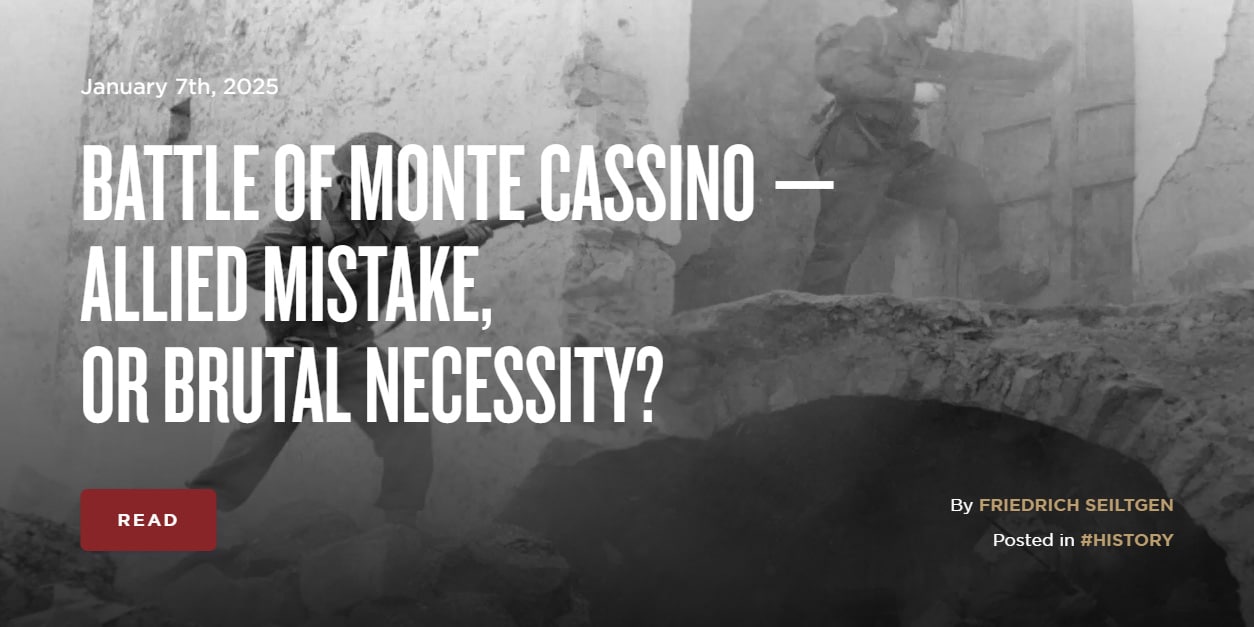Hello all, here is today's article posted on TheArmoryLife.com. It is titled “Battle of Monte Cassino — Allied Mistake, or Brutal Necessity?” and can be found at https://www.thearmorylife.com/battle-of-monte-cassino/.



I'm not taking a position on the article or battle, but learning from history - especially possible mistakes - helps us to make better decisions in the future. We absolutely should examine this battle and learn what we can from it.This has been arm chair quarter backed for years. Truth is you weren't there, neither was I. You NOR I can second guess what was decided, planned, and executed all those years ago. If you think you know better than the generals of that time then clearly you should just go ahead and end hunger, homelessness, and all the wars going on now. Give me a break.
No truer words have ever been spoken. Too many kids these days have so little appreciation of the price paid by so many so they (and much of the world) could live free. Seems like schools today gloss over history. Many key event that shaped the world have been reduced to a footnote. I had many long discussion with my children about historic event. The good news that once they understood the importance of the past it opened their eyes. They began to glean details through their own personal readings. My daughter loved stories about the holocaust, my son seemed to gravitate to the revolution and the founding of our nation. Once the spark is lit, they seem to run with it. Sadly, it seem too many parents don't know enough, or don't how to light those sparks. Too many kids would rather play video games and live in the virtual world of social media... real brain killers.If anyone on the Forum has kids/grandkids they should be reading everything that is posted in History. They are a quick read and relay a lot of factual information in more detail than the kids get in school.
